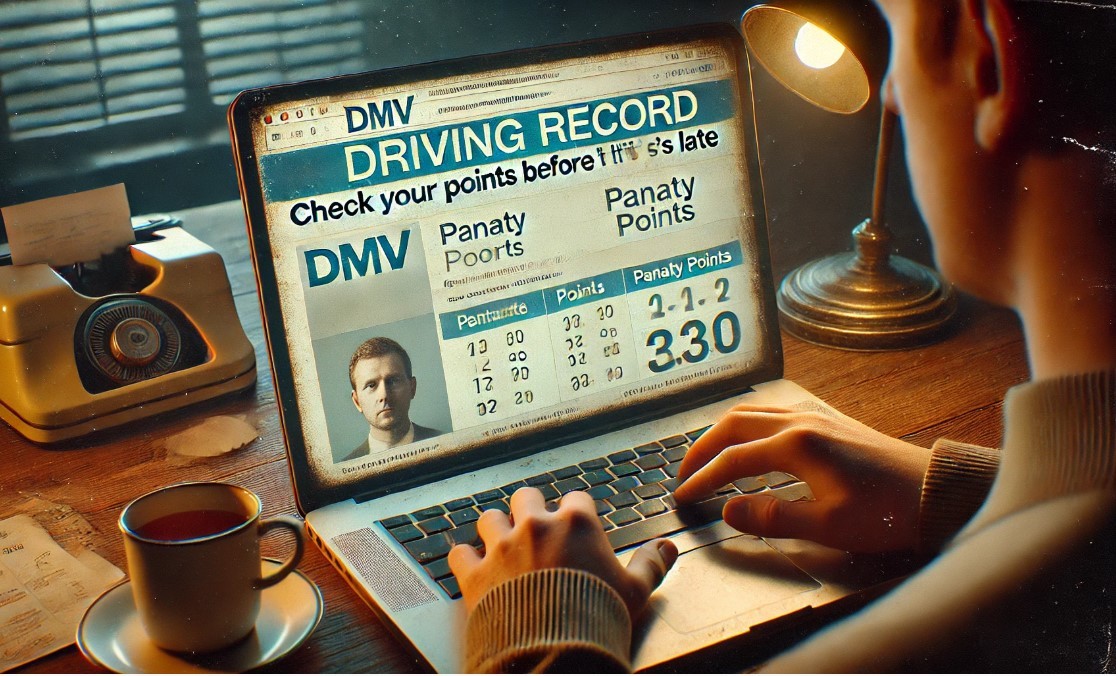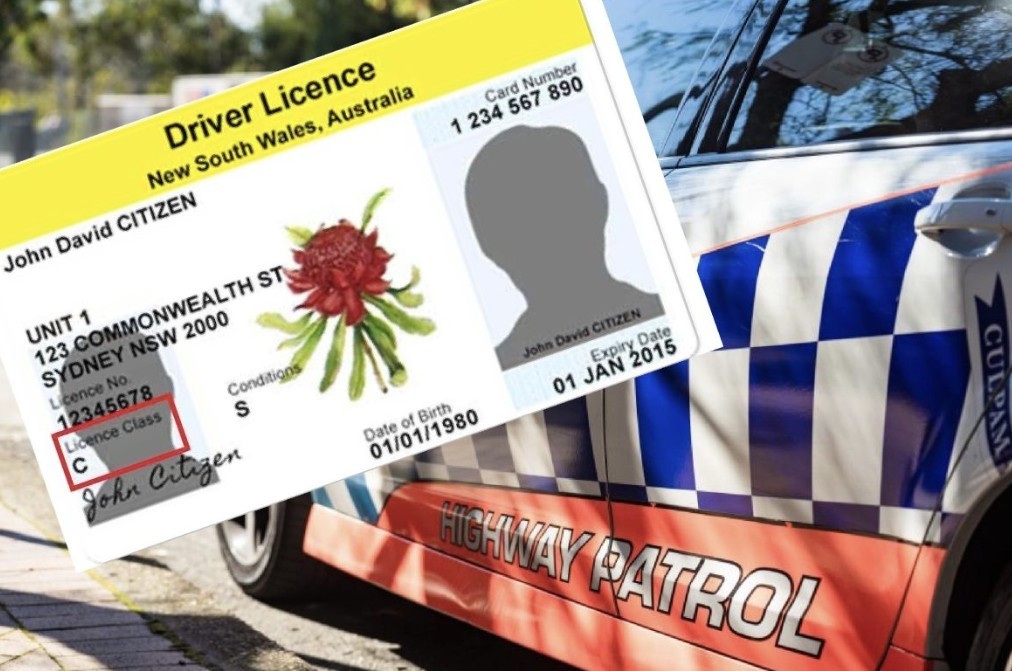The Ultimate Guide to Finding a Car Owner by License Plate in the US
| Table of Contents |
In certain circumstances, finding a car owner in the U.S. by using their license plate number is a necessity. Whether for identifying an individual involved in a hit-and-run, verifying vehicle ownership in private transactions, or tracing a stolen car, people may need to use this information for legitimate purposes. However, personal privacy and legality are major considerations when attempting to look up someone’s details through a license plate.
In the United States, license plate information is regulated by the Driver’s Privacy Protection Act (DPPA) and various state-specific laws. These regulations are designed to protect individuals' privacy while allowing specific entities, such as law enforcement and authorized professionals, access to sensitive information when necessary. However, with strict limitations on personal information access, it’s essential to understand which methods are legal and effective.
Learn more: How to Check The Car Owner in the US With License Plate Number - 2024 Report
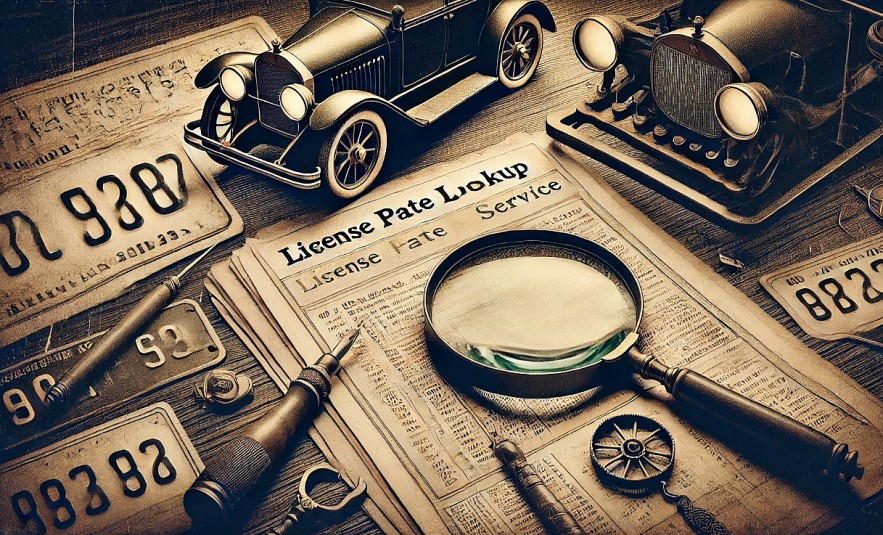 |
| How to find a Car Owner by License Plate in the US |
Why You Might Need to Look Up a Car Owner
While privacy regulations are in place to protect personal data, there are legitimate reasons one might need to look up a car owner by their license plate. Here are some common scenarios:
Accident Cases
One of the most common reasons for looking up a car owner’s information is after an accident. In cases where a driver may have left the scene without exchanging information, such as in hit-and-run accidents, the affected party might need to identify the vehicle owner. Reporting the incident to the police is the first and most crucial step, as law enforcement has legal authority to track down the registered owner using the license plate.
Suspicious or Dangerous Behavior
If someone witnesses a vehicle being used in suspicious or dangerous ways, reporting it to the authorities is both a civic duty and a safety measure. For instance, if someone observes reckless driving, suspected intoxication, or other illegal activities, noting down the license plate and reporting it is an effective approach. Only law enforcement can legally access the owner’s data, ensuring that the information is obtained and used in compliance with privacy regulations.
Vehicle Verification for Buyers
Private car buyers sometimes want reassurance that the seller truly owns the vehicle, especially in direct, peer-to-peer transactions. While a license plate alone won’t provide proof of ownership, it can help a buyer confirm details through additional channels, such as vehicle history reports or insurance databases. In this case, verifying details such as a VIN (Vehicle Identification Number) with the license plate can be instrumental.
Stolen Vehicles
Victims of vehicle theft may rely on both law enforcement and personal efforts to recover their car. After reporting the theft, they may use online forums, social media, and community resources to gather tips or sightings. In this context, having the license plate information can aid in rallying the public or neighborhood groups to keep an eye out for the stolen vehicle, thereby supporting recovery efforts.
Understanding the Legal Landscape
 |
| Who owns this car? |
When it comes to accessing vehicle ownership information via license plate numbers in the U.S., legal regulations are strict. This section will cover key legal guidelines, specifically the Driver’s Privacy Protection Act (DPPA), state-specific laws, and the consequences of unauthorized access.
Driver’s Privacy Protection Act (DPPA)
The Driver’s Privacy Protection Act (DPPA) is a federal law passed in 1994 to safeguard personal information stored within the records of motor vehicle departments (DMVs) across the U.S. The DPPA was enacted to prevent misuse of personal data, such as license plate and ownership information, by unauthorized individuals or entities.
Under the DPPA:
- Limited Access: Only specific agencies and professionals, including law enforcement, insurance companies, and licensed investigators, are granted access to private information from DMV records.
- Permissible Use: Certain situations allow access to license plate details, such as car accidents, insurance claims, or cases involving stolen vehicles.
- Data Restriction: Data use is strictly limited to the stated purposes, preventing unauthorized individuals from accessing or misusing someone’s information.
While the DPPA provides a federal framework, each state may implement its own version with varying levels of restriction on access to personal information.
State-Specific Regulations
Each U.S. state has its own regulations on license plate and vehicle information access, with states like California and New York known for particularly strict privacy protections. Here are some examples:
- California: California's privacy laws offer strong protections against accessing personal data. Unauthorized access to DMV records can result in serious penalties.
- Texas: Access to vehicle information in Texas is also highly restricted and requires proof of necessity for specific cases, such as car accidents or stolen vehicle reports.
- Florida: Florida allows certain public access to information but requires a valid, permissible purpose under DPPA guidelines, making license plate lookups for personal reasons largely prohibited.
These differences mean that access to license plate information may be possible in one state but restricted in another. Those seeking information should research their state’s specific regulations or consult with a legal professional to ensure compliance.
Legal Consequences of Unauthorized Access
Accessing license plate information illegally can lead to severe penalties. Consequences may include:
- Fines: Individuals who unlawfully obtain or share license plate information can face fines under state and federal law.
- Legal Action: Misuse of personal data may result in lawsuits, especially if the information was obtained and used without proper authorization.
- Criminal Charges: In some cases, unauthorized data access or sharing can lead to criminal charges, depending on the nature and intent of the act.
When Access is Permitted
Despite the restrictions, the DPPA and state laws outline specific conditions under which license plate information can be legally accessed. These situations typically include:
- Law Enforcement Investigations: Police officers can access license plate data for investigations, such as in accident cases, hit-and-runs, or criminal activity.
- Insurance Claims: Insurance companies can request DMV records to validate claims involving accidents or property damage.
- Licensed Private Investigators: Certain licensed investigators are permitted to access DMV records as part of authorized investigations.
Understanding these guidelines ensures that anyone seeking information does so within the boundaries of the law.
4 Popular Methods to Check Car Ownership Legally
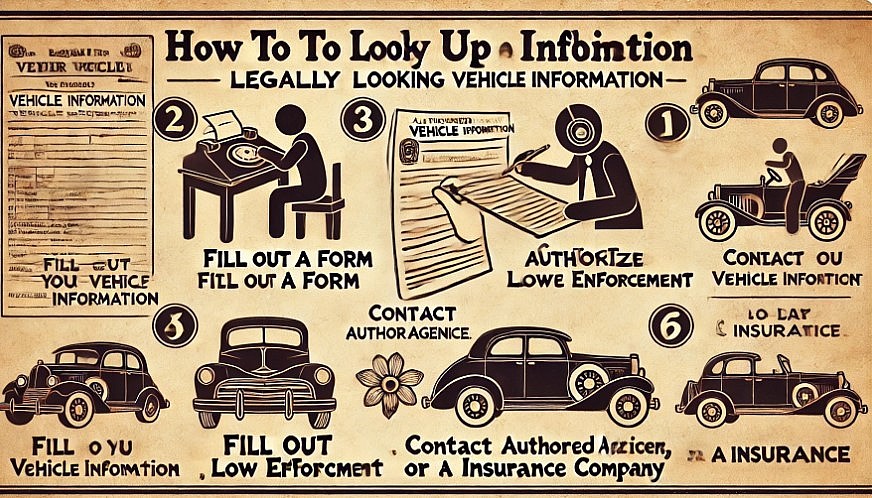 |
| A step-by-step guide for legally looking up vehicle information in the US |
When attempting to identify a car owner through a license plate number, only a few methods are both effective and legally compliant. Here’s a look at some reliable, legal methods:
Method 1: Using Public Records Online
Public record search websites offer general information and may sometimes list vehicle details, though specifics about the owner are often restricted. These services aggregate data from public databases, but access to personal information, such as an owner’s name or address, is limited by DPPA restrictions.
- Pros: Public records may reveal non-sensitive information like car model and year, or whether a car has been in a reported accident.
- Cons: Accuracy varies, and these services rarely provide complete ownership details.
- Examples: Websites like BeenVerified or Instant Checkmate offer public record searches but typically don’t allow direct owner identification through license plate numbers alone.
Method 2: Requesting Information through DMV
Submitting a direct request to the Department of Motor Vehicles (DMV) is a more formal route to obtain information. The process varies by state, but it typically requires filling out a form, paying a fee, and explaining the reason for the request in accordance with DPPA guidelines.
-
Steps:
- Visit the DMV website or local office and locate the necessary request form.
- Complete the form, including any necessary documentation to support the request.
- Submit the request along with payment of the applicable fee.
-
Expected Information: Depending on the reason for the request and the state, you may receive limited information, such as verification of ownership for cases like accident claims.
-
Limitations: DMV requests are generally processed only for specific legal reasons and are subject to strict scrutiny.
Method 3: Hiring a Private Investigator
Licensed private investigators have legal access to certain DMV records, allowing them to conduct car ownership searches under DPPA guidelines. Hiring a private investigator can be beneficial for individuals who need more in-depth information, such as in cases involving theft recovery or legal investigations.
- Cost: Hiring a private investigator varies in price, typically starting at $100 but potentially costing several hundred dollars for more extensive research.
- Benefits: Professional investigators are trained to access information legally, and they often provide comprehensive reports.
- Considerations: Ensure that the investigator is licensed, as unlicensed services may risk legal issues.
Method 4: Law Enforcement and Insurance Assistance
When an individual is directly involved in an incident, such as an accident or crime, involving the vehicle, they can rely on law enforcement or insurance providers to access information.
- Law Enforcement: Police can legally obtain license plate data when it’s connected to accidents, criminal activity, or public safety concerns. Contacting local law enforcement is often the most straightforward option in these cases.
- Insurance Companies: Insurers can obtain vehicle information for claims, provided that there’s valid evidence linking the claim to the vehicle in question.
These methods ensure that individuals remain within legal boundaries when seeking license plate-related information.
What States are Covered by Verification?
In the United States, vehicle information accessibility varies significantly by state, primarily due to the strict guidelines of the Driver's Privacy Protection Act (DPPA) and additional state-specific privacy laws. While federal law provides the baseline for how vehicle data can be accessed, each state applies its own rules, making some states more restrictive than others when it comes to license plate lookups and owner information verification. Here’s a closer look at how access to vehicle information differs across various states.
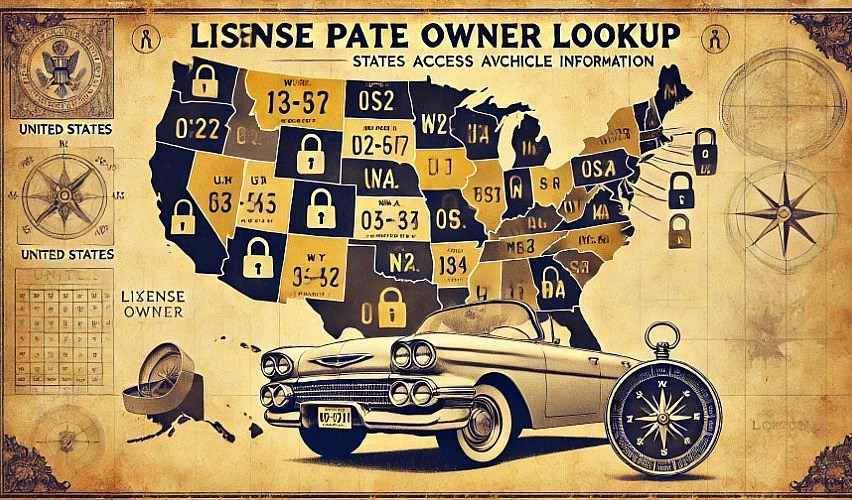 |
| The U.S. map with each state marked by lock or unlock symbols |
States with Strict Privacy Protections
Some states impose strong privacy protections, making it difficult to obtain vehicle information, even through authorized channels. These states require clear, legally permissible reasons, such as involvement in an accident or law enforcement investigation, to access any ownership data.
- California: Known for its rigorous privacy laws, California only grants access to vehicle information for very specific purposes, such as law enforcement needs or insurance claims related to verified accidents. Personal license plate lookups are strictly prohibited.
- New York: Similar to California, New York enforces strict privacy measures. Requests for vehicle ownership information require substantial justification and must comply fully with DPPA guidelines.
- Texas: Texas allows access to vehicle information under controlled conditions, generally requiring authorization and limiting public access to sensitive data.
In these states, only approved organizations like insurance companies, law enforcement agencies, and licensed investigators have limited access to ownership details when necessary.
States with Moderate Access Conditions
Other states provide moderate access to vehicle information, often permitting public records or DMV requests for specific legal reasons, such as accident verification or insurance purposes. However, these requests are still subject to DPPA compliance and state approval.
- Florida: While Florida offers public access to certain DMV records, the information available is limited to permissible uses defined under the DPPA. Individuals may apply for information through the DMV for specific, justified reasons, but the state scrutinizes these requests closely.
- Illinois: Illinois permits vehicle data access through DMV requests for legal or insurance-related needs but restricts personal inquiries. Like Florida, access is tightly regulated.
- Ohio: Ohio allows access to vehicle information under controlled conditions, usually involving insurance claims or law enforcement assistance. Residents must submit formal requests, and approval depends on the validity of the reason provided.
States with More Accessible Public Records
Some states offer broader access to public records, allowing more flexibility in obtaining vehicle information. However, even in these states, DPPA guidelines remain in place, meaning that unrestricted access to personal data is still limited.
- Nevada: Nevada has relatively open public records laws, allowing people to access certain vehicle records for legitimate reasons. Individuals may be able to obtain vehicle details like make, model, and year through public databases, but ownership details remain protected.
- Arizona: Arizona also has more lenient public records policies, providing some vehicle information to the public through online databases. However, sensitive information, such as the owner’s name and address, requires authorized access.
- Wisconsin: Wisconsin allows public records searches for specific legal purposes and provides general vehicle details. Personal information access remains restricted to authorized agencies.
Important Considerations for All States
Regardless of the state, individuals should keep the following in mind when attempting to access vehicle information:
- DPPA Compliance: All states follow the DPPA’s guidelines, meaning unauthorized access to vehicle information is illegal nationwide.
- Permissible Purposes: Only specific reasons, such as involvement in an accident, legal investigations, or insurance claims, are deemed acceptable for obtaining vehicle details.
- Use of Professional Services: When in doubt, hiring a licensed private investigator or seeking assistance through an insurance provider can help navigate state-specific regulations legally and effectively.
Online License Plate Lookup Services: What to Know
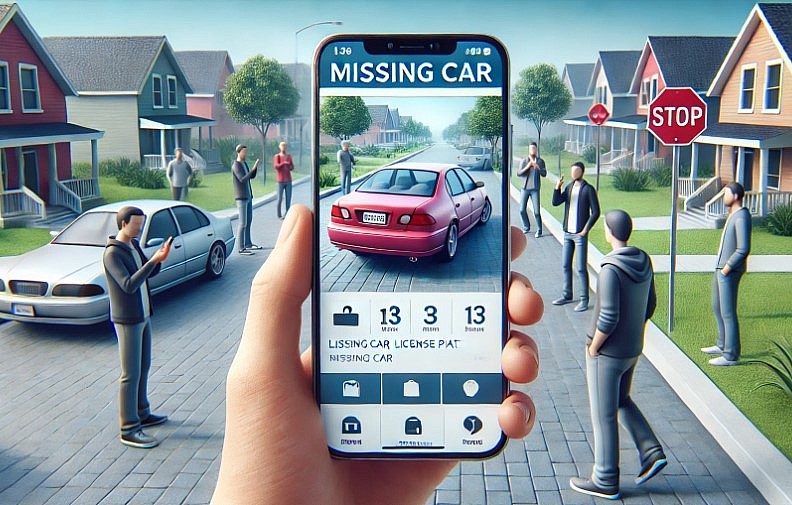 |
| The lost car's license plate |
Numerous online services claim to offer license plate lookup tools, but users should approach these with caution. Here’s what you need to know about these services:
Types of Services Available
Online license plate lookup services often advertise their ability to provide owner information. While some sites can display basic information about a vehicle, most cannot legally reveal personal data without an authorized reason.
Reliability and Risks
- Accuracy: Information accuracy varies widely, with some services providing outdated or incorrect data.
- Potential Scams: Certain sites may charge fees but fail to provide any valuable information or mislead users about legality.
- Data Safety: Entering payment or personal information on unreliable sites can expose users to identity theft or financial scams.
Privacy and Ethical Concerns
Ethically, using third-party lookup services raises privacy concerns. Accessing someone’s personal details without consent may breach their privacy rights, and ethical considerations should guide users to prioritize lawful, responsible actions.
Alternatives to License Plate Lookup
In cases where license plate information is not legally accessible, other methods can help achieve similar goals:
VIN Number Check
The Vehicle Identification Number (VIN) can provide detailed information on a car’s history. Platforms like Carfax and AutoCheck allow individuals to view accident history, ownership changes, and even recall information, offering a legal alternative to direct owner identification.
Using Insurance or Rental Companies
Insurance providers and car rental agencies often collaborate in accident cases, allowing them to identify vehicle ownership when needed. Reporting incidents to these entities provides a lawful way to access ownership data under certain circumstances.
Social Media or Community Resources
In some cases, local community groups or social media can help identify vehicle owners without violating privacy laws. Posting a request for information, along with a brief description and purpose, can often yield helpful responses if approached respectfully.
In Conclusion
Identifying a car owner by their license plate number in the U.S. involves strict legal guidelines. By following the methods and considerations outlined above, you can ensure that any vehicle information gathered is obtained in a lawful and ethical manner. Remember to prioritize safety, legality, and respect for privacy, turning to law enforcement or authorized channels when necessary.
FAQs
1. Are There Differences Between States in Accessing Car Owner Information?
Yes, each state has its own rules regarding public access to vehicle records. States like California and New York have stricter regulations on privacy, requiring strong justification for any data request, while some states may allow limited access for specific purposes. Always check your state’s specific regulations or consult legal advice to ensure compliance with both state and federal laws.
2. Can I Hire a Private Investigator to Check Car Ownership Legally?
Yes, hiring a licensed private investigator is a legitimate and legal method for obtaining vehicle ownership details. Licensed investigators are trained in legal compliance and have access to resources and databases unavailable to the public. However, it’s essential to verify that the investigator holds a valid license and adheres to DPPA and state privacy regulations to avoid any legal complications. Fees vary, generally starting around $100 and increasing based on the scope of the investigation.
3. What Are the Risks of Using Online License Plate Lookup Services?
Online license plate lookup services can be risky due to several factors:
- Data Accuracy: Many of these sites do not have updated or accurate information, potentially leading to unreliable results.
- Scams: Some services may charge high fees without delivering promised information or may request personal data that could lead to identity theft.
- Privacy and Legal Concerns: Unauthorized access or misuse of license plate information may violate privacy laws, resulting in legal consequences. It’s advisable to avoid these services unless they have clear, legal access channels and operate within DPPA guidelines.
4. What Information Can I Expect to Find with a Legal License Plate Lookup?
A legal license plate lookup may reveal basic details about the vehicle, such as:
- Make and Model: The manufacturer and model of the car.
- Vehicle History: Accident records, recall history, and previous ownership details (when permissible).
- Registration Information: Information about vehicle registration status, though detailed owner information (e.g., name and address) is typically restricted.
Access to specific personal details, like the owner’s name or address, is only permitted under circumstances that meet legal requirements (e.g., law enforcement or specific insurance claims).
5. Can I Access License Plate Information for Personal Use, Such as Tracking Someone Down?
No, accessing license plate information for personal reasons, such as tracking down someone’s location or personal details, is generally illegal and can result in severe penalties. The DPPA strictly prohibits unauthorized access for personal motives, and using license plate information in this way can lead to fines, lawsuits, and, in some cases, criminal charges. Instead, consider contacting law enforcement or other authorized channels for legal assistance.
6. Are There Alternatives to License Plate Lookups if I Need Vehicle Information?
Yes, several alternatives may provide useful vehicle information without breaching privacy laws:
- VIN Check: A VIN lookup through services like Carfax or AutoCheck offers details on vehicle history, previous accidents, and ownership changes.
- Community Resources: Posting in local community forums or neighborhood social media groups can sometimes help identify vehicle-related details if done ethically.
- Insurance Assistance: In accident cases, insurance companies can use their own channels to verify the other party’s information and ownership without requiring personal lookup.
7. Is it Possible to Trace a Car Owner from Another State?
Interstate lookups are governed by both the DPPA and individual state laws. While law enforcement can trace a car owner from any state if legally justified, the general public or unauthorized individuals cannot access out-of-state records due to privacy restrictions. For personal needs, consider working with an attorney or investigator who understands multi-state regulations and privacy laws.
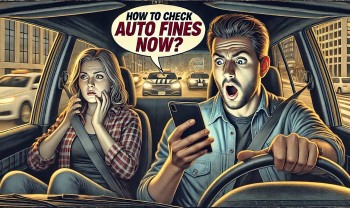 7 Methods for Checking Auto Tickets and Fines in the U.S. 2024/2025 7 Methods for Checking Auto Tickets and Fines in the U.S. 2024/2025 This article will explore the latest methods for checking auto fines, including some of the best online platforms, mobile applications, state-specific regulations, and the latest ... |
 How to Pay Traffic Tickets/Fines in the U.S 2024/2025 How to Pay Traffic Tickets/Fines in the U.S 2024/2025 Whether you're paying a minor parking fine or a more severe traffic citation, this article will walk you through the essential steps to manage your ... |

